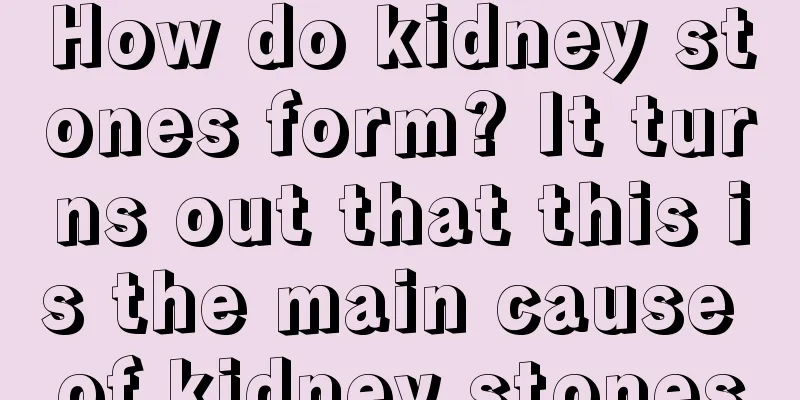What should patients with myocardial infarction eat? Eating these will make your heart attack healthier

|
Myocardial infarction is a common cardiovascular disease, but it is very dangerous. If something goes wrong, the disease is very likely to occur, and in severe cases it can even cause death. Patients with this disease should not overwork or be stimulated, and they should pay more attention to their diet. So what should patients with myocardial infarction eat and how should they eat? (1) Acute phase: Within 3 days after the onset of the disease, you must stay in bed and rest, and all activities (including eating) require special care. 1 to 3 days after the onset of the disease, the main diet is liquid, and a small amount of vegetable water, oil-removed filtered broth, red date paste soup, rice soup, porridge, fruit juice, lotus root powder, oral rehydration, etc. can be given. It is not advisable to consume any solutions that cause bloating or irritation, such as soy milk, milk, strong tea, coffee, etc. The total amount of fluid replacement is about 1000-1500 ml/24 hours, divided into 5-6 feedings. The ideal daily calorie intake is 500 to 800 kcal. Avoid excessive heat or cold to prevent heart arrhythmia. Attention must be paid to the sodium, potassium and magnesium in food. A low-salt diet is generally recommended, especially for patients with concomitant heart failure. However, since sodium is often lost in urine after an acute myocardial infarction, excessive sodium restriction may induce shock. Therefore, it must be adjusted appropriately according to the condition of the disease. In addition, parenteral nutrition can be supplemented for patients who cannot take the food or as required by their condition. For patients with acute myocardial infarction, since they cannot move, their spleen and stomach functions will be affected, so their food must be soft and easy to digest. (2) Remission period: Onset: 4 days to 4 weeks. As the condition improves, you can gradually switch to a semi-liquid diet, but you should still eat small meals frequently. In the late acute stage, total heat energy can increase to 4200-5040 kilojoules (1000-1200 kilocalories). Meals should be light, nutritious and easily digestible. Porridge, cereals, evaporated milk, lean meat, fish, poultry, vegetables and fruits are allowed. Food should not be too hot or too cold, and you should eat small meals frequently to keep your gastrointestinal tract open to prevent excessive straining during bowel movements. After 3 to 4 weeks, as the patient gradually resumes activities, the diet can be relaxed appropriately, but the intake of fat and cholesterol should still be controlled, and sodium should still be restricted for patients with hypertension or chronic heart failure. Obese people should eat less. A full meal (especially one that contains a lot of fat) should be avoided because it can cause another myocardial infarction. This may be related to increased blood lipids after a meal, increased blood viscosity causing slow local blood flow, and easy platelet aggregation leading to thrombosis. On the other hand, the diet should not be overly restricted to avoid malnutrition and increase the mental burden of the patient. (3) Recovery period: Four weeks after onset, when the condition stabilizes, the patient's activity level increases. Generally, daily calories can be maintained at around 1000 to 1200 kcal. Adequate amounts of high-quality protein and vitamins are beneficial to the repair of damaged areas. Dairy protein, lean meat, fish, vegetables, fruits, etc. can all be eaten, especially green leafy vegetables and fruits, which are foods rich in vitamin C. They have a nourishing and conductive nature and should be eaten regularly. The daily diet should also contain a certain amount of crude fiber to keep the bowels open and avoid difficulty in defecation. In addition, after the recovery period, relapse should be prevented, and the dietary principles should also include maintaining an ideal body weight, avoiding full meals, controlling fat and cholesterol intake, and preventing increased blood viscosity and platelet aggregation. Quit smoking and drinking. If you have hypertension and chronic heart failure, you should limit sodium intake. |
>>: Can otitis media cause headaches?
Recommend
Earlobe becomes red, swollen and thickened after ear piercing
Girls all love beauty. When they see others weari...
What are the symptoms of pancreatic cancer in the late stage
If the early symptoms of pancreatic cancer are no...
What can the liver secrete
The liver plays a very important role in human he...
Cardiovascular blockage, the symptoms are actually these
Cardiovascular blockage is a common disease that ...
What are the effects of Gypsophila
I believe everyone has seen baby's breath in ...
What are the differences between first and second childbirth
After my country opened up the policy of having a...
What to do if the nipple is broken and bleeding
If your nipple is broken and bleeding, you must g...
Some of the best ways to soak your feet
Almost everyone knows the benefits of foot soakin...
What are the hazards of selenium to the human body?
As people's fear of cancer is getting worse d...
Can fumigated vinegar kill bacteria?
In life, many people often sterilize their famili...
What are the common diagnostic methods for ovarian tumors
Ovarian malignancy is the disease with the highes...
Which urine test shows kidney disease
Routine urine tests can indeed help us understand...
Can urinary bleeding due to bladder cancer be stopped?
When bladder cancer appears in the early stages, ...
What are eye bags
When it comes to the question of what are eye bag...
Does an 80-year-old with breast cancer still need treatment?
Breast cancer at the age of 80 still needs treatm...









